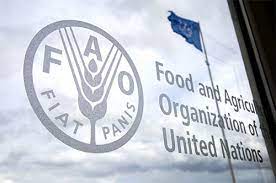The Lagos Chamber of Commerce and Industry (LCCI) has expressed its concerns over Nigeria’s rising debt profile, warning of possible negative consequences if the fiscal challenge is not frontally addressed by the Federal Government.
The Chamber’s Director-General, Dr. Chinyere Almona, pointed out one of the ways out of the fiscal problem required that the government take critical measures by shifting focus to equity financing, divestment or shedding of its equity holdings in state-owned enterprises, real estate and infrastructure.
She explained that this target can be met by reducing the mounting debt commitments and improving its fiscal efficiency as both capital and interest payments on borrowed sums are exposing the country’s fiscal vulnerabilities.
Similarly, the Organised Private Sector (OPS) group’s boss urged the government to, as a matter of urgency, adopt innovative strategies on revenue growth while blocking leakages even as it “may want to consider the need to deregulate the downstream subsector of the oil industry to block a major drain on revenue”.
While recalling the launching of the restructured Ministry of Finance Incorporated (MOFI) as the arrow head of Nigeria’s efforts to optimize national assets by President Muhammadu Buhari on the 1st of February 2023, the LCCI advised that references should henceforth be made to the growth in the stock of financial assets that Nigeria owns in corporate equities, real estate and infrastructure spaces and the returns Nigeria is generating on them, each time government is providing updates on the growth in the stock of the financial liabilities that Nigeria owes and the costs it is incurring on them.
Almona said: “This would motivate national asset managers, led by MOFI, to grow our assets and the returns on them as well as motivate our national liability managers, led by DMO, to minimize our liabilities and the costs we incur on them, with equal vigor.
Indeed, issuance of joint reports by MOFI and DMO could be most ideal going forward. One-sided updates on liabilities with no updates on assets when such updates were adequately available could well be blamed for some of the downgrades of Nigeria’s debt issuance risk profile and outlook.
“The rating outcomes would have been more favourable had updates on assets been provided side-by-side with updates about liabilities”, she added.
The economic expert also noted that given the recent data released by the Debt Management Office (DMO), the nation’s public debt increased by N6.69 trillion or 22.7 percent to N46.25 trillion ($103.11 billion) as at the end of 2022 from N39.56 trillion ($95.77 billion) at end-2021.
According to herm the growth reflected on both the domestic and external debt, adding that the external debt stock increased to N18.70 trillion ($41.69 billion) in 2022 from N15.86 trillion ($38.39 billion) while domestic debt stock went up to N27.55 trillion ($61.42 billion) in 2022 from N23.70 trillion ($57.39 billion).
She further clarified: “In contrast, debt service declined to N3.87 trillion in 2022, representing 8.3 per cent decrease from N4.22 trillion spent in 2021. According to DMO, the increase in the debt stock was due to new borrowings by the federal and state governments to finance their budget deficits, to execute some specific projects, as well as the issuance of promissory notes to settle some Federal Government obligations.
“Between 2013 and end-2022, the Lagos Chamber of Commerce and Industry (LCCI) notes that public debt rose by 360.47 percent, from N10.04 trillion in 2013. As a result, we are deeply worried by this development in the face of insignificant revenue growth, large presence of decaying infrastructure and the unsustainable burden of oil subsidy overhang.
“Although, a decline in debt service appears positive but the ratio of debt service to government revenue at about 90 percent remains alarming and unsustainable”, the Director-General added.




